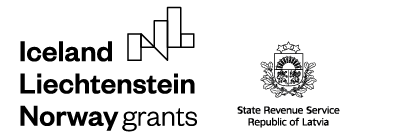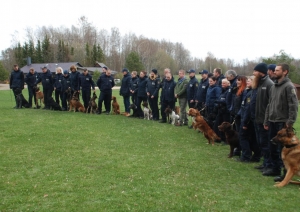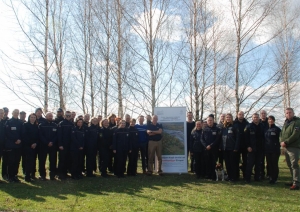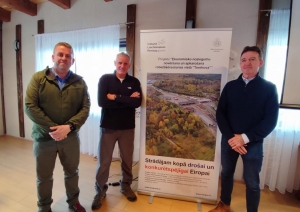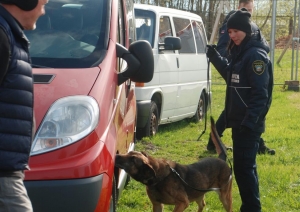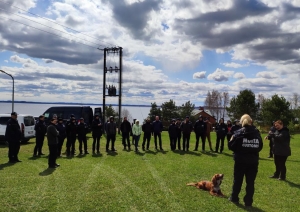From April 26 to 28, State Revenue Service (SRS) Customs Board scent-dog handlers participated in specialised training on the impact of an unfavorable work environment on labor productivity, organised by the SRS Customs Board in cooperation with the Organization for Economic Co-operation and Development (OECD).
The aim was to improve knowledge of current scent-dog training methods and improve dog-handlers’ knowledge on how to recognise and avoid various daily occurrences that could negatively affect working dogs and their ability to perform effeciently. Knowledge and skills were acquired through various learning methods.
The first day focused on theory, during which world-renowned OECD experts described best practices and informed dog-handlers about latest trends in working-dog training, including knowledge on unfavorable working conditions and stress that can affect working-dog productivity. The second day of training included practical classes and role-play. Practical training on the third day, led by an expert invited by SRS, focused on changing a dog's desired or unwanted behavior through mental exercises.
Thirty-eight members of the SRS Customs Board Scent-dog Department supplemented their knowledge and practical skills. Participants appreciated the training, recognising that the acquired knowledge and skills would be useful in their daily work, improve communication with their working dogs, and facilitate prevention of border violations.
Training took place as part of the project "Prevention and Combating of Economic Crime at the Terehova Border Crossing Point", implemented through the program "International Police Cooperation and Combating Crime", co-financed by a European Economic Area grant. More information about the project is available here. The project includes planned purchases of new working dogs, teaching and training aids, and training for young working dogs.
Working together for a secure and competitive Europe




